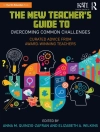The expert guide to the major issues, the chief trends, and the most effective models of program evaluation in gifted education!
The readings in this ready-reference report on specific program evaluations, offer critical guidance in the development and utilization of instruments for assessing gifted and talented programs, and are designed to stimulate the discussion of issues surrounding the evaluation of gifted programs.
Key features include:
- Carolyn M. Callahan′s comprehensive and insightful examination of the past, present, and hopeful future of gifted program evaluation
- Research-informed theories, practical guidelines, and successful models of evaluation
- Recommendations for future exploration
Program evaluation has been considered an important, but neglected component of gifted education for the last three decades. Program Evaluation in Gifted Education provides much needed direction to program developers and practitioners who desire to increase the effectiveness and efficiency of their gifted programs.
The ERGE Series:
The National Association for Gifted Children series Essential Readings in Gifted Education is a 12-volume collection of seminal articles from Gifted Child Quarterly. Put the knowledge and power of more than 25 years of research on giftedness and talent into your hands with the leading theories, studies, and findings the experts in the field have to offer.
Table of Content
About the Editors
Series Introduction – Sally M. Reis
Introduction to Program Evaluation in Gifted Education – Carolyn M. Callahan
1. Asking the Right Questions: The Central Issue in Evaluating Programs for the Gifted and Talented – Carolyn M. Callahan
2. Formative Evaluation of Gifted Programs: A Process and Model – Kyle R. Carter, Wilma Hamilton
3. The Role of Evaluation in Inservice and Staff Development for Educators of the Gifted – Marilynn J. Kulieke
4. Anchoring Assessment With Exemplars: Why Students and Teachers Need Models – Grant Wiggins
5. The Assessment of Creative Products in Programs for Gifted and Talented Students – Sally M. Reis, Joseph S. Renzulli
6. Making Evaluation Work: One School District′s Experience – Linda D. Avery, Joyce Van Tassel-Baska, and Barbara O′Neill
7. An Evaluation of the Catalyst Program: Consultation and Collaboration in Gifted Education – Mary S. Landrum
8. Evaluation of a Full-Time Self-Contained Class for Gifted Students – Joyce Van Tassel-Baska, Gordon B. Willis, and Donna Meyer
9. Expert Benchmarks for Student Academic Performance: The Case for Gifted Children – Eva L. Baker, John Schacter
10. Qualitative Assessment of Gifted Education – Sara W. Lundsteen
Index
About the author
Sally M. Reis is a professor and the department head of the Educational Psychology Department at the University of Connecticut where she also serves as principal investigator of the National Research Center on the Gifted and Talented. She was a teacher for 15 years, 11 of which were spent working with gifted students on the elementary, junior high, and high school levels. She has authored more than 130 articles, 9 books, 40 book chapters, and numerous monographs and technical reports. Her research interests are related to special populations of gifted and tal-ented students, including: students with learning disabilities, gifted females and diverse groups of talented students. She is also interested in extensions of the Schoolwide Enrichment Model for both gifted and talented students and as a way to expand offerings and provide general enrichment to identify talents and potentials in students who have not been previously identified as gifted. She has traveled extensively conducting workshops and providing profes-sional development for school districts on gifted education, enrichment programs, and talent development programs. She is co-author of The Schoolwide Enrichment Model, The Secondary Triad Model, Dilemmas in Talent Development in the Middle Years, and a book published in 1998 about women’s talent development titled Work Left Undone: Choices and Compromises of Talented Females. Sally serves on several editorial boards, including the Gifted Child Quarterly, and is a past president of the National Association for Gifted Children.












